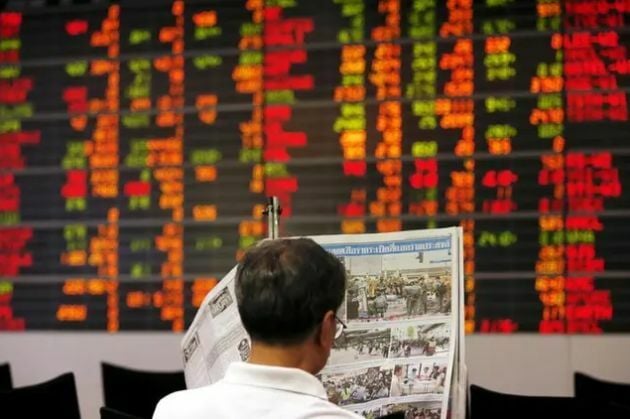Business uncertainty grows as Thai stock slide continues amid Chinese property defaults and Russian turmoil

Analysts flagged potential downswings to the Thailand Stock Exchange (SET) index due to ongoing business uncertainties in Russia and loan defaults in China’s property market. Over the past week, the SET index experienced a seven day consecutive drop, and despite brief rallying, finished in the red.
Concerns stemming from smaller stock performances and news of Chinese property market default have contributed to cautious investments and overall market instability leading to business uncertainty. Recent development saw the SET index decrease by 0.49%, settling at 1,478.10 points.
Rakpong Chaisuparakul, senior VP of KGI Securities (Thailand), suggests the trend of ‘sideways down’ market activity may persist due to underlying investor anxieties. These concerns, contributing to business uncertainty, revolve around international economic health and the potential repercussions of major central banks’ continued rise in interest rates. He noted the lack of impact from China’s recent fiscal stimulus on their economic situation.
Asia Plus Securities (ASPS) also highlighted implications from the quickly resolved unrest in Russia, which still holds the potential for escalating anew. This instability and business uncertainty could consequently cause an increase in commodity prices, inflation hikes and, as a result, hurt stock markets, reported Bangkok Post.
ASPS’s research note emphasised the importance of monitoring Russia’s situation due to its significant contribution to the global commodities market, particularly as the foremost wheat exporter and tertiary oil producer in 2020. It noted that oil prices significantly increased by 76% in a six month duration following Russia’s invasion of Ukraine early in 2022 – a surge that triggered cost-push inflation and resulted in interest rate rises.
Meanwhile, rising apprehensions around political turbulence in Russia and potential supply chain disruption have resulted in oil price increments and business uncertainty. Asian market expectations of possible further stimulus packages from China are also supporting demand prospects.
West Texas Intermediate oil grew to nearly US$70 per barrel after a volatile session, caused by the unfolding political predicament in Russia over the weekend.
China’s Premier, Li Qiang, has announced intentions for more mechanisms to enhance domestic demand and mitigate business uncertainty. Yet, analysts have pointed out that these are largely recycled promises from earlier official declarations.
Latest Thailand News
Follow The Thaiger on Google News:


























